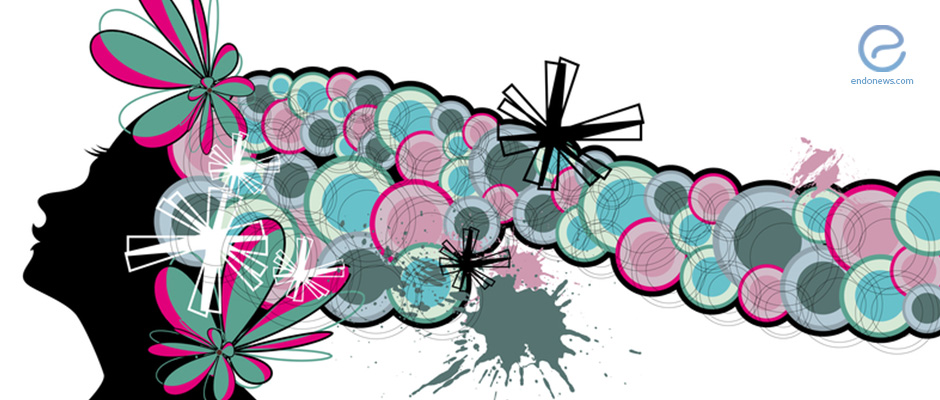Hair Cortisol Levels are Higher in Women Suffering from Endometriosis
Mar 13, 2018
Women suffering from endometriosis have higher hair cortisol levels, which are indicative of increased stress, and these cortisol levels were found to positively correlate with Health-Related Quality of Life.
Key Points
Highlights:
- This study analyzes hair cortisol levels in women with endometriosis and women without endometriosis. Hair cortisol levels can be used to determine chronic cortisol concentrations, which further indicates stress levels in the individual from whom the samples are collected.
- The researchers wanted to find out if chronic pain symptoms and health-related quality of life (HRQoL) are linked with hair cortisol levels in women that suffer from endometriosis.
Importance:
- Chronic stress and chronic high levels of cortisol may be present in women suffering from endometriosis: High levels of cortisol lead to impaired function of the immune system and can subsequently cause worse inflammatory reactions, and adversely affect a woman with endometriosis.
- Scientists have demonstrated the adverse effects of stress on endometriosis in animal models but not in human models.
- Researchers believe that the hypothalamus-pituitary-adrenal (HPA) axis, which is activated by stress, can become dysregulated and contribute to endometriosis-related inflammation.
What’s done here?
- The researchers recruited patients with laparoscopic or MRI confirmed endometriosis. Control subjects were recruited using social media and advertisements. Control subjects and subjects with endometriosis were taking some form of hormonal treatment.
- The researchers collected sociodemographic characteristics and medical data for all of the participants.
- Participants with endometriosis were assigned disease severity (revised American Society for Reproductive Medicine classification), pain intensity quantified by the Verbal Numerical Rating Scale.
- Two HRQoL questionnaires applied are the 36-item Short Form Health Survey (SF-36) and the Endometriosis Health Profile 30 (EFP-30).
- Each participant was required to give a scalp hair sample. Hair cortisol was analyzed using an enzyme-linked immunoassay (ELISA).
Key results:
- The mean hair cortisol level is higher in women suffering from endometriosis.
- Women with endometriosis had a positive correlation with hair cortisol level and HRQoL. This pattern can be explained by the emotional and physical stress caused by endometriosis. This same pattern was not noticed in control subjects. However, hair cortisol levels are not associated with pain intensity in women with endometriosis.
- Results above show HPA-axis dysregulation in women with endometriosis; researchers believe this dysregulation is caused by higher chronic stress levels in these women.
Limitations of the study:
- The study recruited 62 women in total. This small sample can affect the significance of the results.
- The study was conducted in one geographical area. Negative controls and other high chronic stress controls are needed.
Lay Summary
Aken et al. recently published a piece in Psychoneuroendocrinology titled “Hair cortisol and the relationship with chronic pain and quality of life in endometriosis patients.” This publication discussed a study that analyzed hair cortisol levels in women with and without endometriosis. Hair cortisol levels are indicative of chronic cortisol concentrations, which are further illustrative of individual stress levels. The researchers wanted to discern a link between chronic pain symptoms, health-related quality of life (HRQoL), and hair cortisol levels in women suffering from endometriosis.
The study consisted of 62 women. 31 women had endometriosis, and 31 women did not. The researchers collected sociodemographic characteristics and relevant medical data from all of the 62 patients. These women were given two HRQoL questionnaires, more specifically they were given the Short Form Health Survey (SF-36) and the Endometriosis Health Profile 30 (EFP-30). Scalp hair samples were collected from each of the participants. These samples underwent hair cortisol analysis. Enzyme-linked immunoassay (ELISA) was used to measure chronic cortisol levels in the hair samples. The data from this study was subject to extensive statistical analysis.
The results of the study show that on average hair cortisol levels are higher in women suffering from endometriosis. Additionally, women with endometriosis had a positive correlation between HRQoL and hair cortisol levels. On the other hand, hair cortisol levels and pain intensity were not related in women with endometriosis. Researchers believe the results of this study are indicative of a dysregulated hypothalamus-pituitary-adrenal (HPA) axis in women with endometriosis. They think that this dysregulation is a result of chronically high levels of stress, emotional and physical, which is caused by endometriosis.
Research Source: https://www.ncbi.nlm.nih.gov/pubmed/29414035
hair cortisol stress HPA-axis HRQoL ELISA

